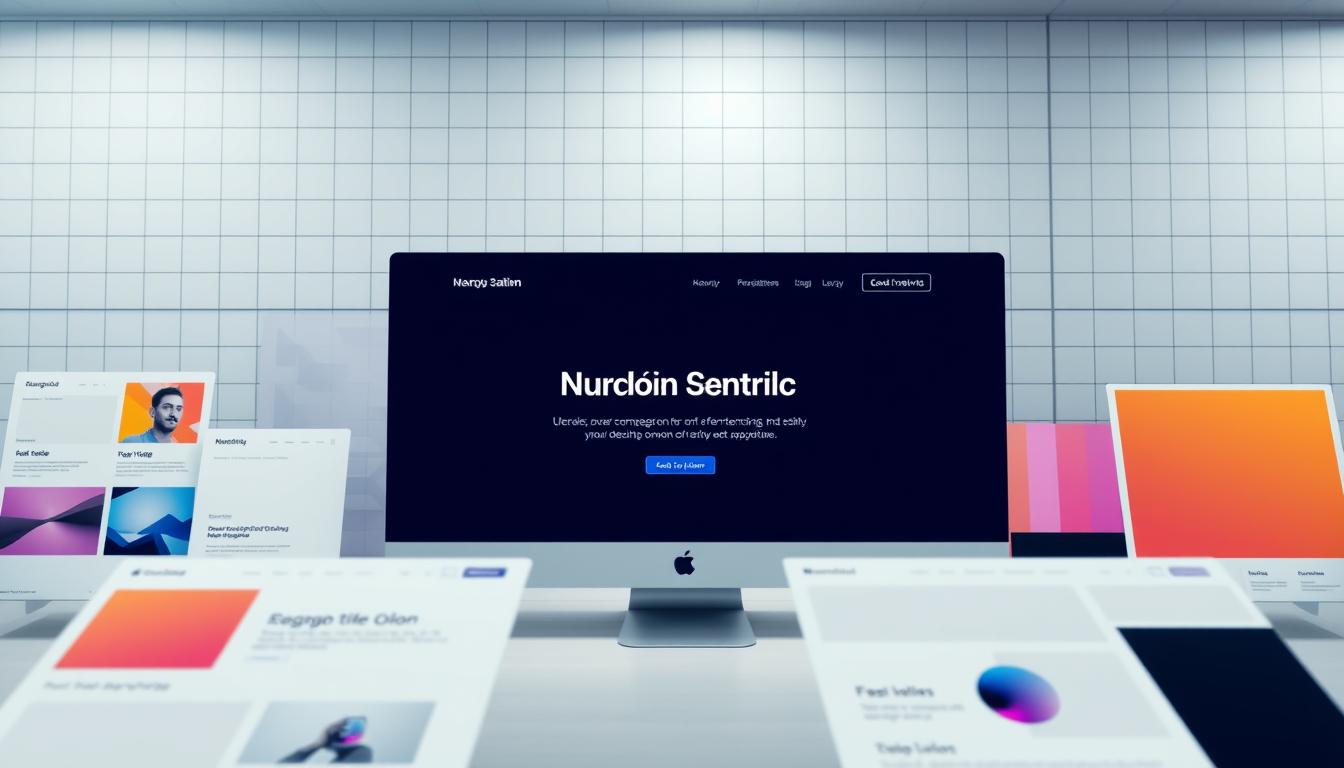As businesses expand their digital presence, maintaining consistency, efficiency, and scalability in web development becomes a challenge. This is where design systems for scalable websites come into play. A design system is a structured framework that includes UI components, design principles, and development guidelines, enabling teams to create and maintain websites with consistency and efficiency.
Design systems for scalable websites allow brands to deliver seamless user experiences, improve development speed, and maintain a strong visual identity across multiple platforms. They provide a single source of truth for design and code, ensuring that as a business grows, its website remains cohesive, high-performing, and user-friendly.
As a leader in web development and digital transformation, WiFi Digital specializes in creating custom design systems that help businesses streamline their workflows and build scalable websites with ease. In this article, we’ll explore what a design system is, why it’s crucial for scalability, and how businesses can implement it effectively.
1. What Is a Design System for Scalable Websites?
1.1 Understanding Design Systems
A design system is more than just a style guide—it’s a comprehensive framework that standardizes design and development. It consists of:
✅ UI Components – Buttons, forms, icons, typography, and color schemes.
✅ Design Principles – Guidelines on branding, usability, and accessibility.
✅ Code Standards – Predefined CSS, HTML, and JavaScript frameworks.
✅ Documentation – Resources for designers and developers to follow best practices.
1.2 How Design Systems Enable Scalability
Scalability means being able to grow a website efficiently without sacrificing quality. A well-structured design system ensures that:
- New pages and features align with brand identity.
- Design and development teams collaborate efficiently.
- Code is reusable, reducing development time.
- Websites remain fast, accessible, and easy to maintain.
By using design systems for scalable websites, businesses can reduce inconsistencies, improve efficiency, and enhance user experience.
2. Why Businesses Need Design Systems for Scalable Websites
2.1 Consistency Across All Digital Platforms
A strong brand identity requires visual and functional consistency. Design systems ensure that:
✅ Colors, fonts, and UI components remain uniform across different pages.
✅ Users have a seamless experience regardless of the device they use.
✅ Developers don’t waste time recreating the same elements for different projects.
2.2 Faster Development and Deployment
By using predefined components and code snippets, developers can:
✅ Speed up development workflows.
✅ Reduce errors and inconsistencies.
✅ Launch new features faster without compromising quality.
2.3 Improved Collaboration Between Teams
Design and development teams often struggle with misalignment. A design system serves as a shared resource that:
✅ Aligns designers and developers with standardized elements.
✅ Reduces back-and-forth revisions.
✅ Ensures smooth handoff from design to code.
2.4 Scalability Without Sacrificing Performance
As a business grows, its website must adapt to new requirements. A design system:
✅ Allows easy scaling by reusing components.
✅ Ensures a uniform experience across multiple products or brands.
✅ Optimizes website performance by avoiding unnecessary code duplication.
2.5 Better Accessibility and Compliance
A good design system ensures that all UI components are:
✅ Accessible for users with disabilities (following WCAG and ADA guidelines).
✅ Mobile-friendly and responsive for different screen sizes.
✅ Optimized for SEO and fast load speeds.
With WiFi Digital’s expertise, businesses can build design systems that improve efficiency, user experience, and accessibility.
3. Key Components of an Effective Design System
3.1 UI Component Library
A centralized collection of reusable UI components such as:
✅ Buttons, input fields, modals, and navigation bars.
✅ Icons, illustrations, and typography.
✅ Color palettes and themes that align with the brand.
3.2 Design Tokens
Design tokens are small, reusable design variables that ensure consistency, such as:
✅ Font sizes and styles.
✅ Spacing, grid systems, and breakpoints.
✅ Shadow effects and border styles.
3.3 Documentation and Guidelines
A design system is only effective if teams know how to use it. It should include:
✅ Detailed documentation on how components should be used.
✅ Code snippets and usage examples.
✅ Best practices for accessibility, UX, and branding.
3.4 Code Framework and Integration
A strong design system should be easy to integrate into development frameworks, supporting:
✅ React, Vue.js, or Angular for dynamic frontends.
✅ CSS-in-JS solutions like Styled Components.
✅ Headless CMS and e-commerce platforms.
By implementing these components, businesses can scale their websites without losing quality or efficiency.
4. How WiFi Digital Helps Businesses Implement Design Systems
As a trusted partner in digital transformation, WiFi Digital helps businesses:
✅ Develop fully customized design systems tailored to their brand identity.
✅ Integrate UI component libraries into modern development frameworks.
✅ Ensure accessibility and mobile responsiveness across all platforms.
✅ Optimize performance and SEO for scalable growth.
✅ Provide continuous support and updates as the business evolves.
From startups to enterprise-level companies, WiFi Digital ensures that design systems empower businesses with long-term scalability and efficiency.
5. Steps to Implement a Design System for Your Website
Step 1: Conduct a Design Audit
Analyze existing UI components, identify inconsistencies, and define areas for improvement.
Step 2: Define Brand Guidelines and Design Principles
Establish a clear visual identity, including colors, fonts, and UI behavior.
Step 3: Build a Component Library
Create reusable UI elements that ensure consistency across the website.
Step 4: Document Usage Guidelines
Provide developers and designers with instructions on how to use components properly.
Step 5: Integrate with Development Frameworks
Ensure that the design system is easy to implement in existing codebases.
Step 6: Continuously Improve and Update
A design system is not static—it should evolve with user needs and technological advancements.
With WiFi Digital’s expert solutions, businesses can streamline their web development process, enhance collaboration, and create a future-proof online presence.
A design system is an essential tool for businesses looking to scale their websites efficiently while maintaining consistency, usability, and high performance. By implementing a well-structured design system, businesses can:
✅ Improve workflow efficiency
✅ Enhance user experience
✅ Ensure brand consistency
✅ Speed up development and deployment
With WiFi Digital’s expertise, businesses can develop and implement design systems that drive growth, scalability, and innovation.
🚀 Ready to build a scalable website with a robust design system? WiFi Digital can help!
WiFi Digital: Connecting Businesses to the Digital Future
In today’s fast-paced world, where a strong digital presence is essential for business growth, WiFi Digital emerges as a strategic partner for small and medium-sized businesses (SMBs). Founded in 2023 and based in London, Ontario, the company has a clear mission: to provide affordable, high-quality solutions that help businesses thrive online. With an experienced and passionate team, WiFi Digital goes beyond simply creating websites and marketing strategies. Its purpose is to empower entrepreneurs, strengthen brands, and give clients more free time to focus on what truly matters – growing their business and improving their quality of life.
WiFi Digital develops websites that authentically and professionally represent your brand, optimizes systems and digital marketing strategies to enhance visibility and return on investment (ROI), and offers affordable, customized solutions, ensuring that businesses of all sizes have access to effective growth tools. With transparency, partnership, and innovation, the company provides each client with the necessary support to achieve real results.
Business digitalization is not just about numbers or metrics. It directly impacts entrepreneurs’ well-being, bringing more organization, efficiency, and freedom to focus on what truly matters. WiFi Digital understands that by investing in digital solutions, businesses gain time, reduce operational stress, and create opportunities to connect better with their customers. A well-structured online presence not only increases sales but also strengthens the public’s trust in the brand.
Beyond technical expertise, WiFi Digital’s key differentiator is its commitment to people. The company values genuine relationships, creates tailored strategies, and works side by side with clients to ensure that every solution meets their specific needs. If you’re looking to boost your brand, attract more customers, and still have more time to focus on what truly matters, now is the time to act!
💡 Transform your digital presence with experts who understand your needs.
📩 Contact us now: contact@wifidigital.ca
🌍 Learn more: www.wifidigital.ca
🚀 Your growth starts here!



